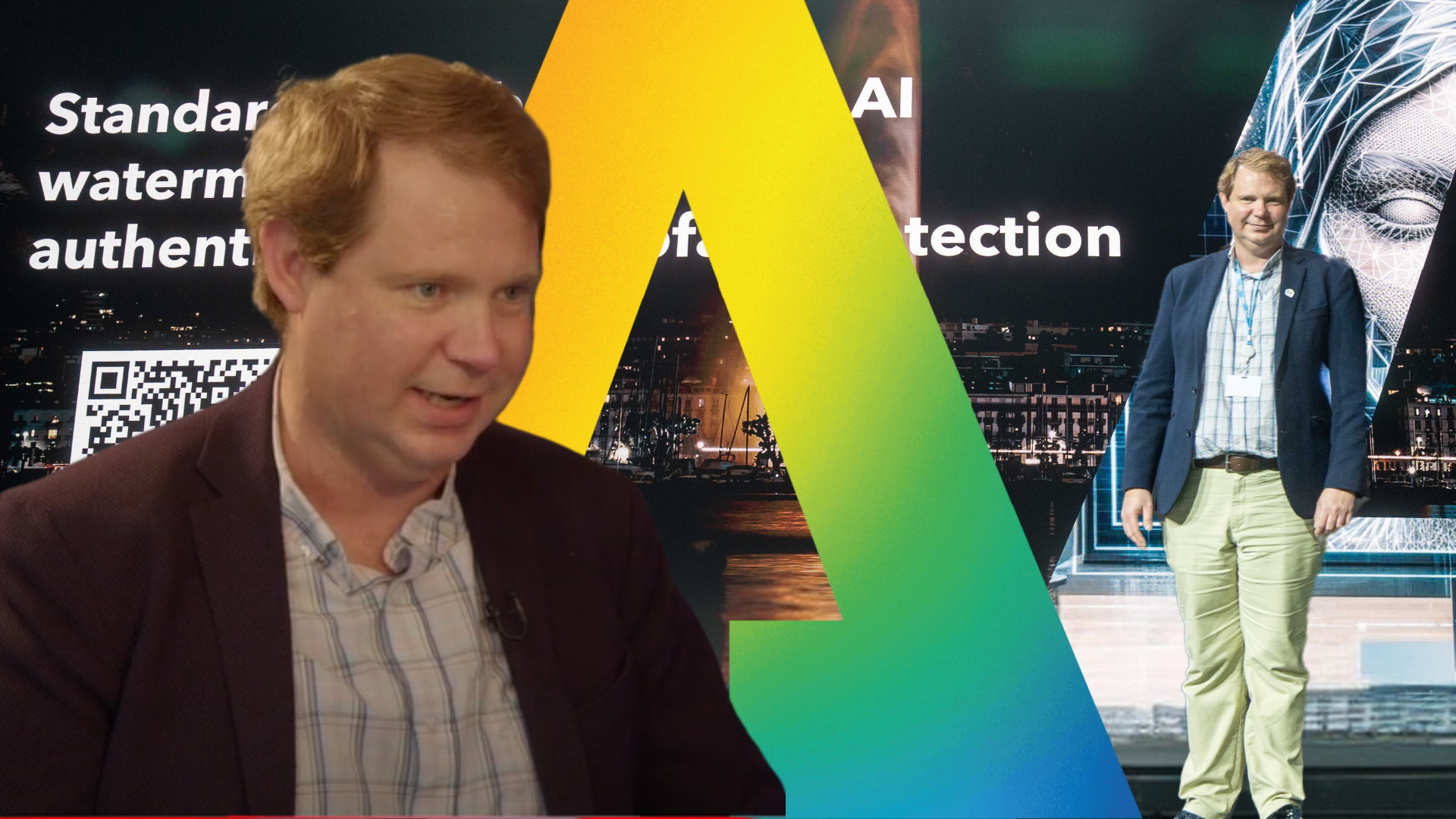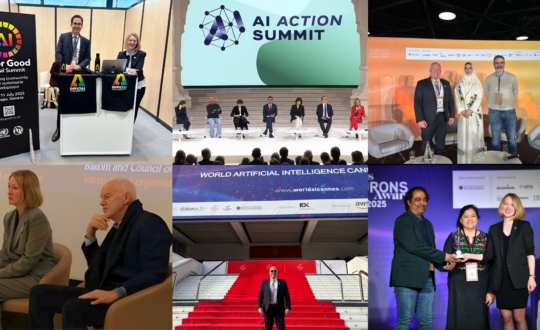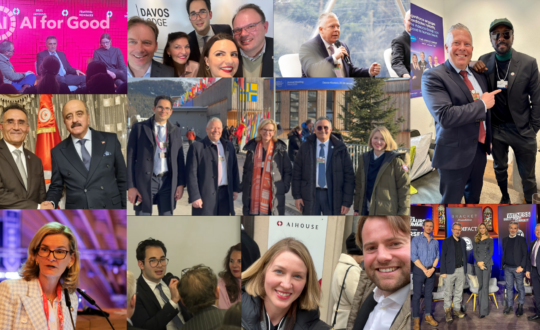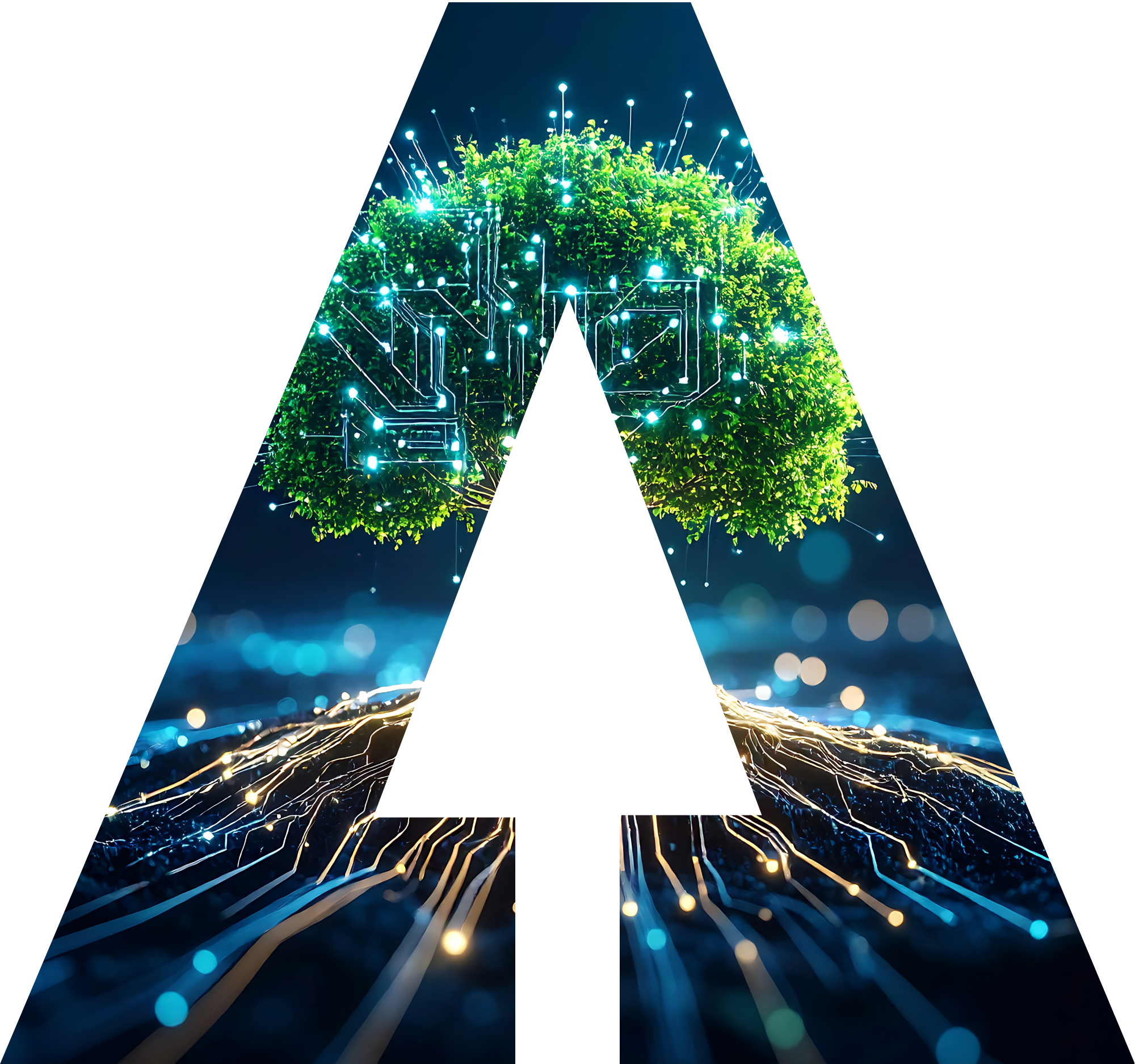The AI for Good Global Summit 2024, held in Geneva, brought together leaders and innovators from various sectors to discuss the transformative potential of artificial intelligence (AI). Among the distinguished speakers was Andrew Jenks, Director of Media Provenance for Microsoft and Executive Chair of the Coalition for Content Provenance and Authenticity (C2PA). Jenks discussed the critical role that technology can play in supporting media integrity and transparency.
During the event, he participated in a workshop and a panel discussion focused on international standards for generative AI and cooperation among standards groups to enhance global collaboration.
Jenks explained that the theme of the first panel was how international standards could assist with the transparency and disclosure of generative AI, and that the second panel focused on how standards groups could work together to foster more internationalization and cooperation in these areas, describing these elements as essential parts of the AI puzzle. These discussions highlight the importance of transparency in generative AI, enabling users to understand and trust the technology they interact with.
In an exciting development during his second panel, a new standards collaboration on AI watermarking, multimedia authenticity, and deepfake detection was announced. This initiative involves the C2PA and major international organizations such as the International Electrotechnical Commission (IEC), the International Organization for Standardization (ISO), and the International Telecommunication Union (ITU). This collaboration aims to develop coordinated standards for AI watermarking and enhance the detection and verification of multimedia content authenticity.
Jenks also elaborated on his role and the concept of media provenance, describing it as the idea of binding basic facts to a piece of media in a cryptographically secure way. This technology ensures that media content remains unaltered from its original source. Jenks emphasized the importance of this capability:
“If you’re on X or any other social network and you see a piece of media that reports to come from the BBC or CNN, it might look exactly like it comes from them, but you have no real way of knowing if that’s what they originally published or if it’s been altered.”
To address this issue, C2PA’s technology provides a way to confirm the authenticity of media content.
“Our technology gives you a way to be able to confirm that what you’re seeing is what was originally published. It gives you some trust signals to determine whether or not to trust a piece of media,” Jenks noted.
This approach aims to combat misinformation and enhance user trust in digital content.
Jenks explained that this technology functions as an underlying protocol already supported by platforms like LinkedIn, TikTok, and Meta for AI-generated content. He expressed hope that, in the future, it will become as recognizable as the lock icon for HTTPS—an indicator that signifies enhanced security.
Jenks expressed his fascination with the diverse applications of AI for the Sustainable Development Goals (SDGs) showcased at the event. “I’ve seen everything from kickballs that help rehabilitate injured children to lights that help with fall detection. It’s been really amazing to see the different applications of AI,” he remarked. This exposure broadened his perspective beyond his niche in generative AI content.
Reflecting on his first-time experience at the summit, Jenks underscored the importance of ensuring AI benefits all of society.
“The applications of AI for good are endless, but we really have to be careful and make sure that we have the proper safeguards, international standards, and uses in mind when we create these artificial intelligence systems,” he said.
This cautious approach is vital to ensuring that AI developments are inclusive and beneficial.
He expressed hope for progress and emphasized the importance of cooperation among different standards groups and international organizations. He noted that bringing together various standards groups, including the ITU and representatives from UN member nations, is crucial to ensure a progressive approach.
Andrew Jenks’ participation at the AI for Good Global Summit underscores Microsoft’s commitment to leveraging AI for societal benefit. By focusing on media integrity and transparency, Microsoft aims to combat misinformation and build trust in digital content. Jenks’ insights highlight the critical role of international cooperation and standards in shaping the future of AI. His contributions at the summit illustrate the transformative potential of AI in the media industry and beyond. Microsoft’s dedication to ensuring media integrity through cryptographically secure provenance technology demonstrates a proactive approach to combating misinformation. As AI continues to evolve, the collaborative efforts emphasized by Jenks provide a roadmap for harnessing technology to benefit society at large. His vision for AI combines technological innovation with ethical considerations, ensuring that AI developments are secure, transparent, and beneficial for all.


 Register here
Register here













